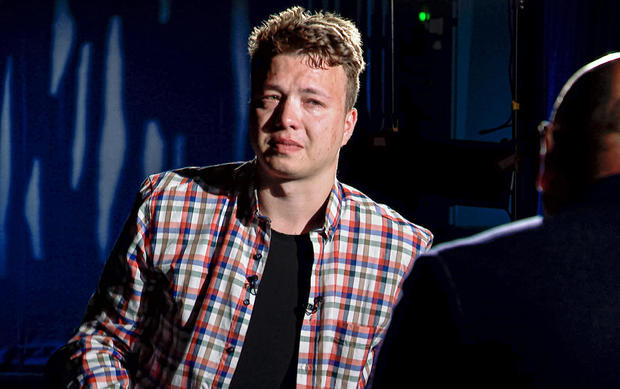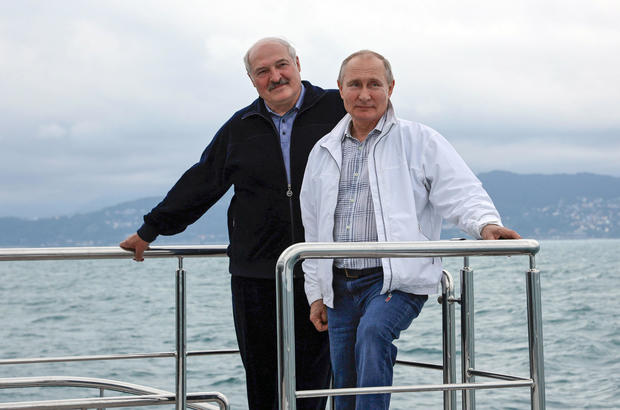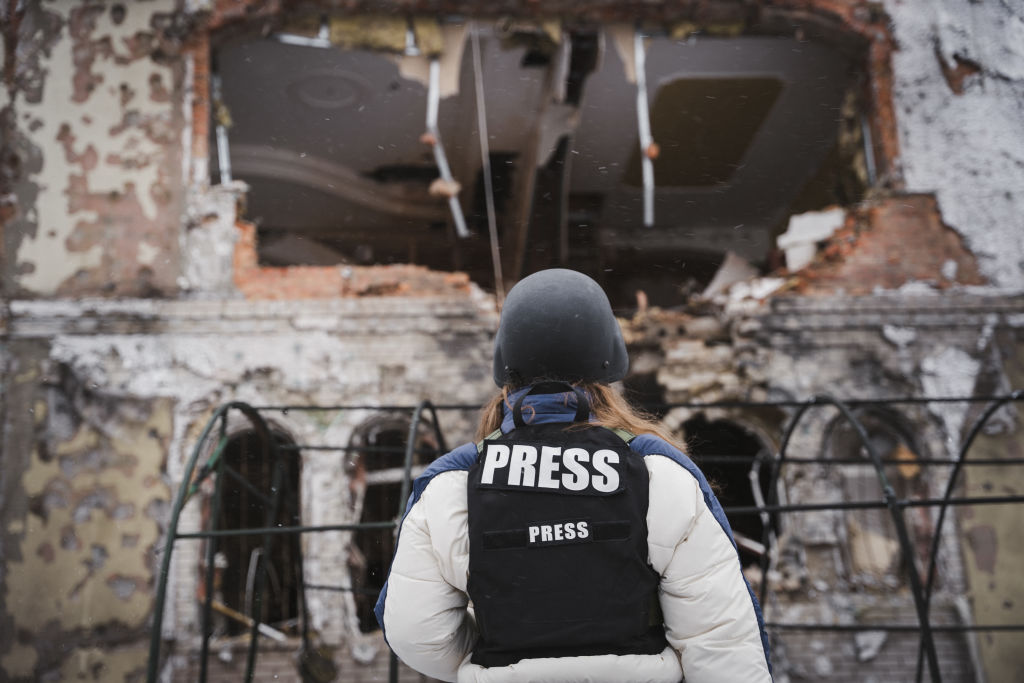Russian journalist shares warning about Belarus media crackdown: "Terrible things are happening when no one is watching"
Every Belarusian journalist who Russian investigative editor Alexey Kovalev has worked with "is in jail or exiled," he told CBSN.
His claim is an echo of a chilling May op-ed the Russian journalist penned in The New York Times, in which Kovalev lists three leading figures in Belarus independent media that he once worked with. Now, one of them is detained by authorities for "tax evasion," another is sitting in pretrial detention after her website was shut, and the third spent a 15-day stint in jail before fleeing the country.
"That's just the people I can name without causing any further harm to them," Kovalev said on Friday.
He warns a "lawless information black hole" is developing in the small, key nation that he calls a "buffer" between Western Europe and Russia.
"No independent reporters are allowed to work there. It's just Russian and Belarusian state media, that would be the only sources of information coming out of there," Kovalev said. "Believe me, terrible things are happening when no one is watching."
Human Rights Watch says authorities in Belarus have escalated repression against independent journalists in recent months, arbitrarily detaining and beating journalists and imposing prison sentences and fines on charges it says are politically motivated. It's part of an effort to silence reporting on human rights violations and nationwide protests, according to the organization.
"Instead of ensuring justice for sweeping police brutality and other abuses, Belarusian authorities are prosecuting journalists reporting on sensitive issues," Hugh Williamson, Europe and Central Asia director at Human Rights Watch, said in a March report.
Belarus' strongman President Alexander Lukashenko, a key Putin ally, sparked international outrage for the arrest of critic Raman Pratasevich last month.
Pratasevich was escorted off his Ryanair flight from Athens to Lithuania when Lukashenko ordered it down in Minsk under the guise of a bomb threat. Ryanair's CEO believes Russian agents were on the flight.
"Belarus and Russia are in a union, it's a pretty obscure one, but we are sharing a judicial system and our law enforcement agencies are in contact like in a union state," Kovalev claims.
He believes Russia is "not that far behind" Belarus in waging war on independent journalism.
"Lukashenko has just officially outlawed any reporting from opposition — from unauthorized rallies, that is all of them," he explained. "And in Russia, it is the legal cost of reporting that is frankly unaffordable for many independent outlets, like ours."
"In order to cover a protest rally you have to have an in-house lawyer to deal with the fallout, because the police will be knocking on your door demanding to see your credentials, and declaring them illegitimate."
Kovalev's outlet, Meduza, was designated a "foreign agent" by the Russian government — "despite no credible evidence to the fact," he states.
"The only point is to slowly drive ourselves out of the market," he said.
In Belarus, state media released a video this week of a weeping Pratasevich claiming to respect the authoritarian leader he criticized for years. His friends and family call it a forced confession.
"That Pratasevich video was extremely hard to watch. I mean, I'm a jaded reporter with over 20 years' experience, but I just couldn't bring myself to it," Kovalev said. "Next time I fear it could be someone I know."
"If it goes at this pace," Kovalev said, "there won't be any reporting coming out of Belarus."





